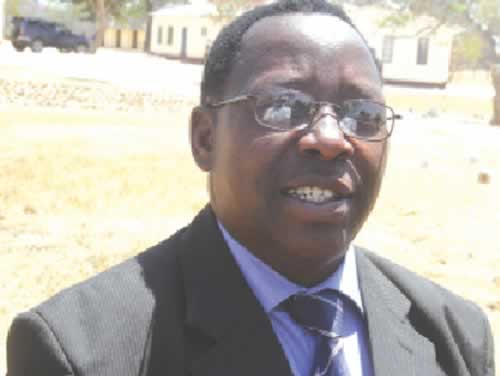
The Sunday News

THE Government will soon ban fuel imports transported by road and will only allow the commodity to be imported through the Beira pipeline or using bulk rail wagons as a way of monitoring quality and minimise the risk of accidents, an official said.
Permanent Secretary in the Ministry of Energy and Power Development Mr Pattison Mbiriri told delegates at an energy conference held last Friday during the Water, Sanitation, Hygiene and Energy Expo in Bulawayo that it has been discovered that dirty and sub-standard fuel was being brought using trucks as there was minimal monitoring.
“We will only allow trucks to transport fuel when they are distributing it locally but not from other countries. We have also discovered that such fuel end up causing fires because of poor storage,” he said.
Mr Mbiriri said specifications on the quality of fuel to be imported have been gazetted allowing the Zimbabwe Energy Regulatory Authority to carry out inspections.
“In the past we used to get all sorts of fuel and in some cases water was being put in our cars. Zera has acquired a mobile laboratory and it will move around the country taking samples and testing the products. Most companies have been complying but we still have problems in some industrial areas,” he said.
On power, Mr Mbiriri said the Government was chasing a number of projects meant to improve generating capacity in the country.
“We have a shortage of between 600 and 800 megawatts but we can also not import the shortfall because the region is facing a shortfall of 5 000 megawatts. We are putting some corrective measures though to ensure we have enough power to meet demand,” he said.
He said refurbishment of Hwange Power Station was under way while the Government is working on buying new equipment for Bulawayo, Harare and Munyati power stations to boost their combined capacity to 300MW.
Meanwhile, the Zimbabwe Electricity Transmission and Distribution Company has said it is on a drive to electrify rural areas in the country to curb rural to urban migration by ensuring people in rural areas are equipped with energy to do business.
Migratory trends worldwide indicate that people generally move from rural to urban areas in search of better living standards, economic well-being, employment and educational opportunities.
Speaking on the sidelines of the official electrification launch at Guwe Secondary School in Nkayi, ZETDC southern region general manager Mr King Dube said if rural people are equipped with power they will have the capacity to do various projects in their areas without moving to urban areas.
“Our mandate is to electrify the whole country and we are aiming at ensuring that all rural areas get power supply as a way of halting rural to urban migration. By ensuring that there is adequate power, people can conduct different business interests and schools can also teach computer related subjects which will be an advantage for both pupils and parents,” said Mr Dube.
Population experts believe the Government needs to establish supporting infrastructure to the rural areas to de-congest urban centres that are failing to cope with problems that are associated with unplanned population growth.
“Let us look at Harare, for example. The capital city is failing to cope with population growth since the infrastructure that is in use was designed to cater for a much smaller population,” said Mr Dube.
Speaking on the electrification of Guwe and Ezinyangeni areas in Nkayi, Mr Dube said ZETDC has assisted the community project by drawing electricity from Silobela while the Rural Electrification Authority (REA) had done the other part.
He said the project was in two parts and ZETDC used about $70 000 for the 11 kilovolt network.
“What we did was to assist the villagers who started this project as it is our mandate to electrify the whole country. The villagers raised some money and REA also assisted,” said Mr Dube.
Mr Dube said the problems at the Hwange Power Station were not a permanent feature as the expansion project will be complete with the installation of two generators by 2018.
“Work at Hwange is yet to begin but once those generators are in, we will be having adequate power in the country,” he said.
According to the 2014 national budget, electricity generation was expected to grow by 4,5 percent spurred by rehabilitation projects at Hwange and other power stations.



